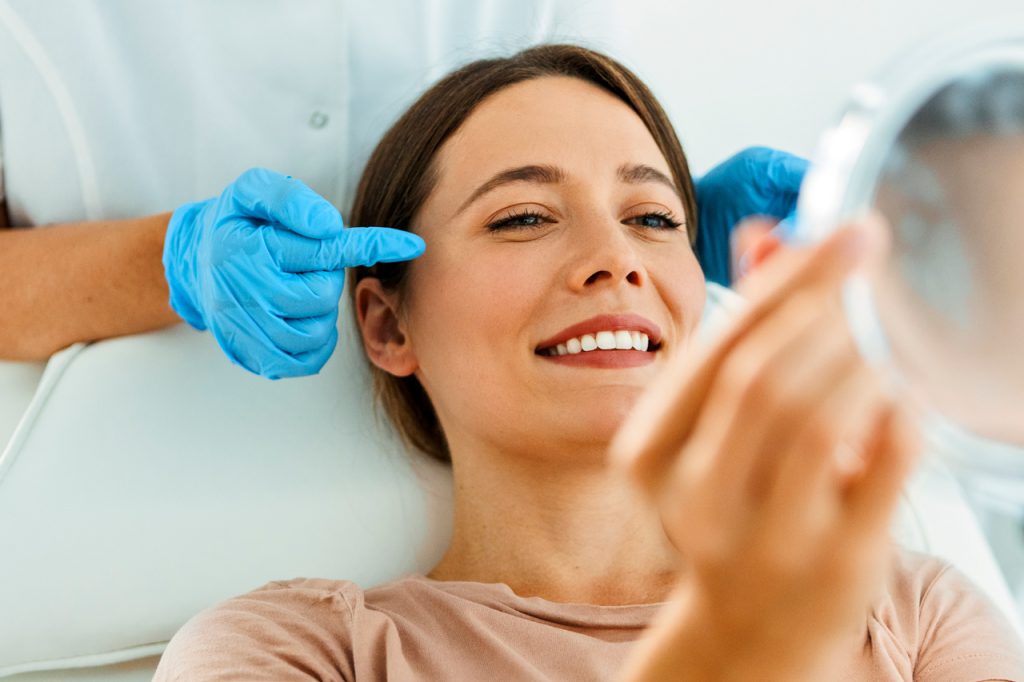
Cosmetic Injectables
When we hear the term cosmetic injectables (such as Botox), we often think about aesthetic facial treatments to reduce frown lines and crow’s feet. Less known however, is that since the early 1990s, this medication has been used by doctors and dentists for various medical therapeutic applications.
In the modern dental practice, injectables containing the botulinum toxin are commonly used as a safe, reversible option for the management of pain in temporomandibular-joint (TMJ) disorders and an adjunctive treatment to the use of night splints in bruxism (night clenching / grinding).
To find out if you are a suitable candidate for treatment, contact us for a free consultation with one of our injectable trained dentists today.
FAQs
What is a TMJ headache?
The most common cause of TMJ headache is jaw tension.
When people clench their teeth (the medical term is “bruxism”), this activity tires the muscles and joints surrounding the mouth and could lead to jaw pain.
Another common cause is a misaligned bite and poor posture.
Someone suffering from a TMJ headache may also have the following symptoms:
Pain in the ear area, temples or over their eyes
- Pain or difficulty chewing food
- Unable to open their mouth fully
- Jaw clicking or popping sounds when moving the jaw
- Sore TMJ hinges
- Ringing in the ears (tinnitus)
- A swollen face
- Sensitive teeth, without any other obvious dental problems
- Chronic migraines
Is there anything that we could do at home to alleviate the TMJ related symptoms before the dentist appointment?
Consuming soft foods, applying cool or warm packs around head and neck muscles may help to alleviate the symptoms but often, in severe cases, further treatment would be directed by your dentists.
Can this be cured?
The recommended treatment for TMJ headaches will depend on the severity of the TMJ disorder.
They can range from simple exercises to complete at home, to surgery that fixes the physical issue causing the disorder.
One of the ways to manage the hyperactivity of the muscles is to receive muscle relaxing injections. Night-time grinding and clenching can also be minimized by having FDA approved muscle relaxing injections by reducing the force of the muscular contractions involved during action.
Patients may require regular dental visits to be guided with muscle relaxing injections.
These injections can make a useful adjunct therapy to night guard appliances.
